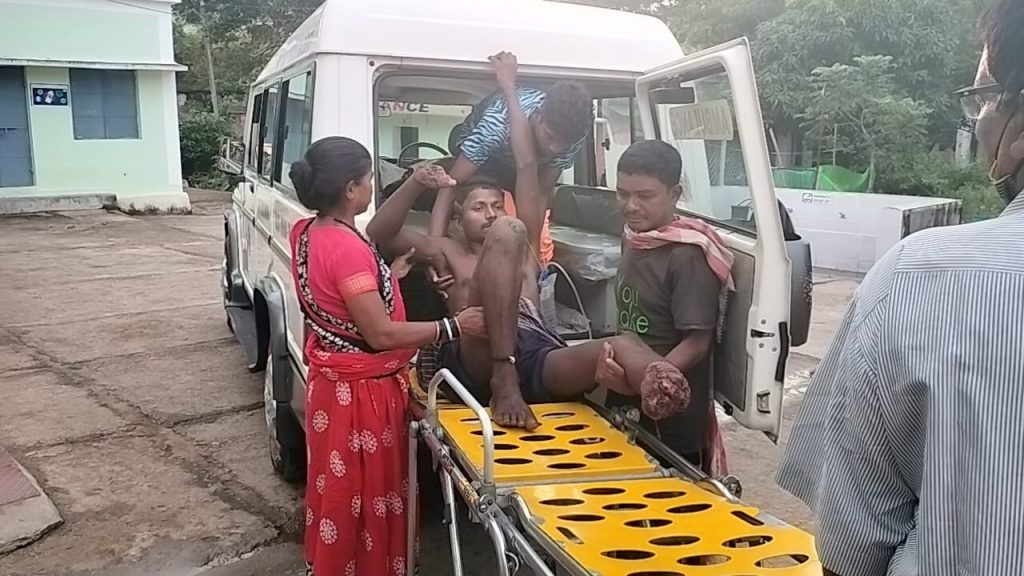Paralakhemundi: In a barbaric incident, a migrant labourer of Kalaba village in Gajapati district had to lose his limbs when he asked for his wage to the agents who had engaged him at a factory in Uttar Pradesh. The incident came to the fore Monday. Shanka Murmu of Kalaba village under Adaba police limits in Gajapati had gone to Uttar Pradesh September 13 on the assurance of four middlemen of his locality that he would get Rs 20,000 a month by working at a cement factory there.
However, what happened to Murmu after he asked for his wage couldn’t have been more brutal. “When I asked for money after working for almost a week, they (the four middlemen) got infuriated and chopped off my right palm and left foot,” said Murmu, adding that they initially admitted him to a private hospital at Jhansi in Uttar Pradesh before abandoning him at his village. “They also threatened me of dire consequences if I dared to approach police against them,” he said. When contacted, Gajapati superintendent of police (SP) Jayaram Satapathy said that they have not received any formal complaint in connection with the incident.
District Labour Officer Loknath Panda said Murmu is undergoing treatment at Mohana community health centre. “Let him recover, we’ll do the needful,” Panda added. Murmu’s case is one among the many. It was sometime in December 2013, when a labour contractor of Andhra Pradesh chopped the right palm of Nilambar Dhangdamajhi, a 22-year-old tribal farmer from Kalahandi district, for not agreeing to his demand. Umi Daniel, director, migration and education, Aide et Action International, blamed it on the poor implementation of antihuman trafficking laws.
The state government has announced an action plan to stop distressed migration from 11 migration-prone districts, including Gajapati, a few years back. However, a precious little has been done in this regard, said Daniel. “It’s high time for the government to ensure enforcement of antihuman trafficking laws like Inter State Migrant Workmen (Regulation of Employment and Conditions of Service) Act 1979, The Immoral Traffic (Prevention) Act 1956 and Bonded Labour Abolition Act.
Human trafficking is rampant in Odisha and the state government should strengthen as well as activate the existing 36 Integrated AntiHuman Trafficking Units across the state to stop trafficking of the hapless,” said Daniel. Government statistics claim that around 28,570 middlemen, who are registered under the Inter-State Migrant Workmen (Regulation of Employment and Conditions of Service) Act 1979, have sent 13,43,972 labourers outside the state between 2013 till April 2022
